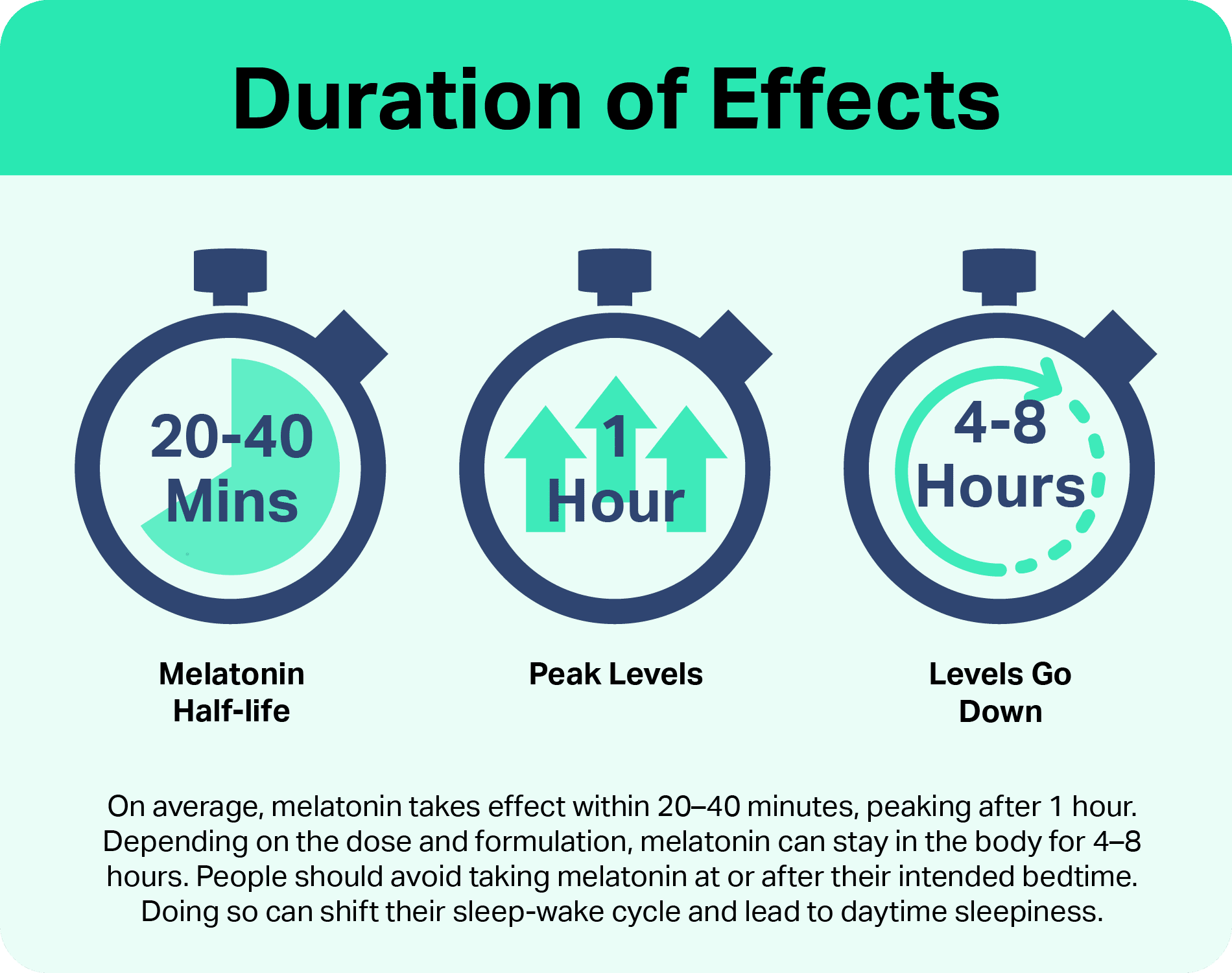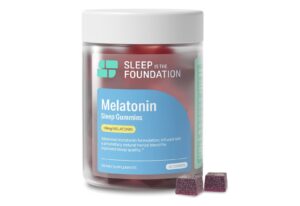Does Melatonin Expire?
Melatonin, a naturally occurring hormone within the body, helps the body shift into sleep at the end of the day. A part of the circadian rhythm, melatonin has an integral role in getting a full night’s sleep.
The human body naturally makes melatonin. However, normal levels of melatonin decline with age . Melatonin can be made synthetically for supplements and is often used to treat jet lag, anxiety, and other sleeping issues.
Melatonin supplements are widely available over the counter in a variety of forms such as pills, patches, liquids, and chewable tablets. Like all medications and supplements, melatonin supplements have an expiration date. Expiration dates are provided by the manufacturer to indicate when full potency and safety of the medication can no longer be guaranteed. Medications should not be used past the provided expiration date.
Get to the root of your sleep problems
Melatonin can help, but it’s best to find the source of your sleep issues. Answer these questions to better understand your sleep.
What Happens If You Take Expired Melatonin?
Considering the long shelf life of many supplements and the relative safety of melatonin, using expired melatonin may not be harmful. Medication and supplement manufacturers choose expiration dates to ensure that you are getting full potency by the printed date. These dates often err on the side of caution. It is possible that your melatonin supplement will maintain its potency past the date printed on the label, though taking expired melatonin is not recommended.
The melatonin supplements you purchase should have an expiration date printed on the label, along with storage instructions. You might notice that melatonin supplements nearing their expiration date do not make you as tired or drowsy. If this is the case, then your melatonin may be losing its potency. It is important to discard and replace melatonin supplements once they have expired.
The safety and efficacy of supplements is not closely monitored by the U.S. Food and Drug Administration (FDA). Shoppers should take additional measures to make sure they are purchasing reputable products.
How Long Does Melatonin Last in Your Body?
Melatonin is fast-acting, with a half-life of 20 to 40 minutes. The half-life of a medication or supplement measures how long it takes for half the dose to be processed and eliminated by the body.
Researchers found that after taking a normal dose of 1 to 5 milligrams, people’s melatonin levels were at their peak within an hour . In that same study, melatonin levels were back to normal after four to eight hours.

Taking an extended release melatonin pill may make you feel more tired when you wake up, especially if you are not able to get a full eight hours of sleep. Extended release pills may also take longer to help you fall asleep. Opting for an immediate release pill or chewable tablet may help you fall asleep faster and wake up feeling more refreshed.
When Should I Take Melatonin to Optimize Its Effects?
Melatonin is produced naturally by the pineal gland in the brain and helps the body shift from waking to sleeping. Taking melatonin up to a few hours before bedtime is generally recommended.
You may want to try using melatonin every other night or a few times a week as needed. Any long-term use of melatonin should be discussed with a doctor or medical professional.

What Is the Proper Melatonin Dosage?
Typically, adults can take between 1 to 5 milligrams of melatonin safely. Like any other supplement or drug, it is important to talk to your doctor first. If you choose to try melatonin, start with the lowest dose possible and slightly increase it if needed. In general, it is best to avoid dosages over 10 milligrams , as you may experience unpleasant side effects such as headache and fatigue.
If you are concerned about the potential side effects of melatonin, there are other over-the-counter sleep aids to consider. Diphenhydramine and doxylamine are two popular antihistamines that can also be used to aid sleep. Herbs like valerian have also been shown to help promote sleep.
Finding the sleep aid that works for you may take time, and working with your health care provider can help you find the right fit. Engaging in healthy sleep hygiene practices may also help you get better sleep.

Still have questions? Ask our community!
Join our Sleep Care Community — a trusted hub of sleep health professionals, product specialists, and people just like you. Whether you need expert sleep advice for your insomnia or you’re searching for the perfect mattress, we’ve got you covered. Get personalized guidance from the experts who know sleep best.
Medical Disclaimer: The content on this page should not be taken as medical advice or used as a recommendation for any specific treatment or medication. Always consult your doctor before taking a new medication or changing your current treatment.
References
7 Sources
-
Alagiakrishnan, K. (2016). Melatonin based therapies for delirium and dementia. Discovery Medicine, 21(117), 363–371.
https://pubmed.ncbi.nlm.nih.gov/27355332/ -
National Center for Complementary and Integrative Health. (2021). Melatonin: What you need to know., Retrieved June 22, 2022, from
https://www.nccih.nih.gov/health/melatonin-what-you-need-to-know -
Tordjman, S., Chokron, S., Delorme, R., Charrier, A., Bellissant, E., Jaafari, N., & Fougerou, C. (2017). Melatonin: Pharmacology, functions and therapeutic benefits. Current Neuropharmacology, 15(3), 434–443.
https://pubmed.ncbi.nlm.nih.gov/28503116/ -
Reiter, R. J., Tan, D. X., & Galano, A. (2014). Melatonin: Exceeding expectations. Physiology (Bethesda, Md.), 29(5), 325–333.
https://pubmed.ncbi.nlm.nih.gov/25180262/ -
Neubauer, D. N. (2022, May 18). Pharmacotherapy for insomnia in adults. In R. Benca & J. G. Elmore (Eds.). UpToDate., Retrieved July 13, 2022, from
https://www.uptodate.com/contents/pharmacotherapy-for-insomnia-in-adults -
McGrane, I. R., Leung, J. G., St Louis, E. K., & Boeve, B. F. (2015). Melatonin therapy for REM sleep behavior disorder: A critical review of evidence. Sleep Medicine, 16(1), 19–26.
https://pubmed.ncbi.nlm.nih.gov/25454845/ -
Morin, C. M., Koetter, U., Bastien, C., Ware, J. C., & Wooten, V. (2005). Valerian-hops combination and diphenhydramine for treating insomnia: A randomized placebo-controlled clinical trial. Sleep, 28(11), 1465–1471.
https://pubmed.ncbi.nlm.nih.gov/16335333/

















